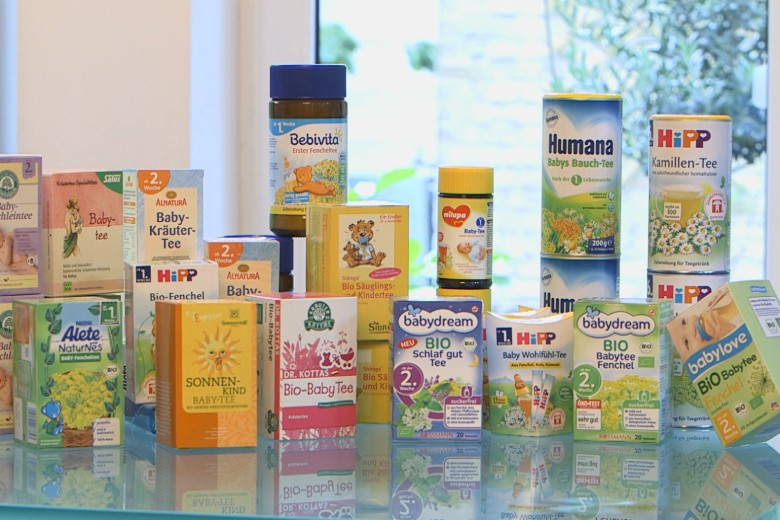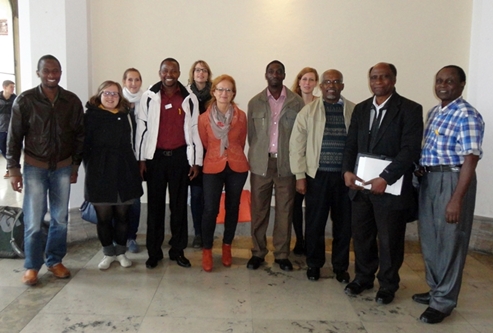These days, it is becoming normal for children to spend endless hours in front of a computer screen, browsing, chatting, gaming and access to all manner of pop ups on the internet. While some experts believe that computer-savvy kids are better prepared for school, others say too much technology can negatively affect children’s development.
In Germany, access to technology is easier and readily available in schools and homes. The school curricula has made computer lessons part and parcel of the academic process. This means that children are exposed to technology at a tender age.
Having said that, there are parents who leave children to their devices without supervision, children at a risk of accessing unsuitable content or worse being victims of online child pornography.
A recent survey on the laptop use in classrooms at Berlin’s Albrecht-Haushofer School in Heiligensee showed that eighth graders were IT savvy. The study carried out by the International Comparative Study (ICILS) showed that most of these kids navigate complex webs without assistance.
While, every parent knows we cannot do without computers in the world we live in today, there are a few pros and cons to consider:
The Pros of Computer Technology for Children:
Fine tuning motor skills:
Pushing keys and manipulating a mouse can help the children to develop their motor skills, same as what they get from painting or doodling. The movement improves hand coordination, and pays off later when the kids gets to do sports, like throwing or catching and other creative activities.
Teach cause and effect:
It’s no secret that kids are fascinated with manipulating things. From pop-up books, anything with levers, switches, or buttons is exciting for the young ones. This is the reason why children and computers have become inseparable, they click on a character or icon, play with letters, and colour, listen to music and watch videos. What the computer does, is giving that satisfying sense of control.
Aid for school work:
In science based subjects like chemistry and physics, videos on experiments can stimulate children’s interest. The smart board also aids the teacher in tackling common queries from the students such as how the search engine works? How to do a certain math problem? What happens to data on the network? And so forth.
Students can easily pair in groups to do their assignments, presentations or homework. Downloads are easily done for those who want to catch up on the lesson at home.
The Cons of Technology for Children
Limits personal contact:
Have you been wondering why your kid is not getting out of his or her room, or why the child lingers on the screen, has become passive and irritant? Well, the kid could be spending a lot of time on that computer game.
The games might be interactive, but typically, it’s only between the user and the screen. But people, especially young kids need to interact with others to develop empathy, build social skills and have person to person fun! Plus, no educational software can compete with parents in the teaching department.
Lack in hands on time:
Kids need to touch and feel things to be able to learn about the world around them. What about those old ways of play, hide and seek, playing house, skipping rope? The essence is with hands-on approach kids learn more than enhanced high-tech approach.
Too much stimulation.
It’s easy for kids to be overwhelmed with so many sensory effects; loud sounds, bold colors, flashing lights, and endless action. If your kid gets cranky or easily frustrated after a computer session, try limiting the screen time. Instead, get the kid to spend more hours to old-fashioned play, here in Germany could be taking a ride around the hood, reading a book, or sculpting a clay castles.
According to experts, kids who become too dependent on computer stimulation may have trouble later focusing on quieter pastimes (like reading or drawing) and paying attention to less high-tech educational mediums like classroom blackboards.
Too much inactive time:
Computers may be mentally stimulating, but kids or everyone else for that matters need to stay active. Physical play is key to kid’s growth. It helps build strong muscles; it’s the easiest way for kids to discover what their bodies can do.
Michael Kölch, Head of the Child and Adolescent Psychiatry at the Vivantes Clinic in Berlin – Friedrichshain warns against too much exposure to computers. Kölch notes that in a year, the clinic records 500 to 600 cases of kids with symptoms of anxiety, depression and computer addition.
As a parent you have the responsibility to limit screen time, this also includes television. It is important to include lots of physical activity in your kid’s playtime.











